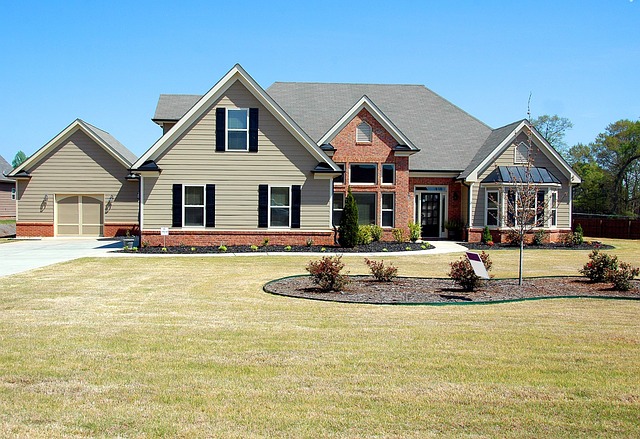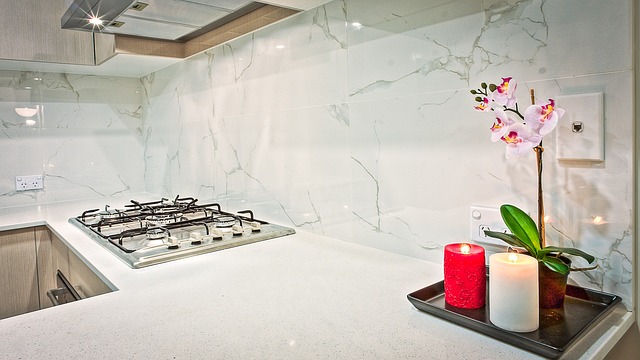Executive Condominiums (ECs) in Singapore serve as a middle ground between public and private housing, offering the amenities of a luxury condo with subsidies and benefits similar to those found in public housing. After a decade, ECs transition from public to fully private properties, influencing their market value and demand. Renters evaluate various factors such as location, on-site facilities, age of the development, and the impending transition status when considering an EC for rent. These units are subject to specific resale conditions and restrictions. The rental market for ECs is influenced by broader economic trends, housing policies, and demographic changes within Singapore. Prospective tenants should consider factors like income ceilings, debt servicing ratios, and the Minimum Occupation Period (MOP) to ensure eligibility. With their strategic locations near essential amenities and transport hubs, ECs are increasingly preferred by professionals and families. The market is also shaped by government policies like MSR and TDSR, making ECs a competitive and cost-effective choice compared to HDB resale flats and private condominiums. As Singapore's population grows and economic conditions improve, the demand for EC rentals is expected to rise, presenting attractive investment opportunities for those interested in the property market.
Exploring the dynamic landscape of Singapore’s housing, this article sheds light on the Executive Condominium (EC) rental market—a unique niche bridging public and private living. We delve into the evolution of ECs, their eligibility criteria for renters, and analyze current market trends and demand drivers influencing the sector. A comparative analysis positions EC rentals against other residential options in Singapore, revealing insights into its distinct value proposition. Furthermore, future projections for EC rentals and potential investment opportunities are examined to guide both residents and investors alike in understanding this housing segment’s significance within the nation’s real estate ecosystem.
- Understanding the Executive Condominium (EC) Rental Market in Singapore
- Evolution of ECs: From Public to Private Housing
- The Eligibility Criteria for Renting an EC in Singapore
- Market Trends and Demand Drivers in the EC Rental Sector
- Comparative Analysis: EC Rentals vs. Other Residential Options in Singapore
- Future Projections for EC Rentals and Investment Opportunities
Understanding the Executive Condominium (EC) Rental Market in Singapore

Executive Condominiums (ECs) in Singapore offer a unique housing option for both singles and families, blending the features of private condominiums with public housing benefits. The rental market for ECs is distinct due to their transition from public to private property over a set period. Typically, after a certain number of years, ECs revert to being private condominiums, which can influence their rental value and demand dynamics. Prospective tenants often consider the location, amenities, and age of the EC when making rental decisions. These factors, combined with the property’s transition status, play a crucial role in shaping the rental market landscape for ECs in Singapore.
Renting an Executive Condominium involves understanding its unique attributes, including the lease term, which mirrors a 99-year lease for private condominiums post-transition. Tenants must also be aware of the resale criteria and restrictions that apply to ECs, such as the minimum occupancy period before one can sublease the unit. The rental market for ECs is influenced by broader economic conditions, government housing policies, and the demographic trends of Singapore’s population. Investors and tenants alike should monitor these factors to make informed decisions within this niche segment of the rental market.
Evolution of ECs: From Public to Private Housing

The evolution of Executive Condominiums (ECs) in Singapore reflects a dynamic response to the changing housing needs of its residents. Initially conceptualized as a hybrid form of public and private housing, ECs were designed to provide an affordable option for couples who met certain criteria, including being first-time applicants for a HDB flat, with at least one being a Singapore citizen. Over the years, these properties have transitioned from their public housing roots to become more aligned with the private residential market. This shift has been influenced by factors such as the maturing of the housing market and changing demographics. As ECs matured, they began to offer larger units and more luxurious amenities, attracting a broader spectrum of homeowners. The pricing and exclusivity of these developments have increased, often mirroring the private condominium market, while still offering the benefits of subsidy for a certain period before they become fully privatized. This transition has seen ECs becoming a popular choice for upgraders seeking a step up from HDB flats without fully entering the private housing market, showcasing their role as a transitional form of housing that plays a crucial part in Singapore’s diverse living options.
The Eligibility Criteria for Renting an EC in Singapore

In Singapore, the Executive Condominium (EC) rental market offers a housing option for individuals and families who meet specific eligibility criteria. Prospective tenants must fulfill several conditions to rent an EC unit. Primarily, they must be Singapore Citizens or Permanent Residents, as foreigners are not allowed to purchase or rent EC units directly from the developer. Additionally, applicants must satisfy the Monthly Household Income Ceiling set by the Housing & Development Board (HDB), ensuring that the rental does not strain their financial situation. Couples intending to rent an EC must also adhere to the Total Debt Servicing Ratio (TDSR) framework, which governs the proportion of a borrower’s monthly income that can be used for repayment of existing debts, including loans or mortgages. Furthermore, they must not own any private residential property or have an outstanding home loan. These criteria are designed to ensure that EC housing remains accessible and affordable for eligible Singaporean families and individuals.
The process of renting an EC involves submitting an application through the HDB, where it undergoes a ballot system if demand exceeds supply. Successful applicants enter into a Minimum Occupation Period (MOP) during which they are not allowed to sublet the EC unit or dispose of it before fulfilling the MOP requirement, which is typically five years. This policy is in place to encourage stability and long-term commitment from tenants, as well as to prevent speculative trading of these units. Tenants must also ensure that their household composition aligns with the regulations set for ECs, particularly regarding the number of occupants allowed per unit. These eligibility criteria are structured to maintain the integrity of the EC rental market and cater to the housing needs of Singaporeans at different life stages.
Market Trends and Demand Drivers in the EC Rental Sector

In recent years, the Executive Condominium (EC) rental market in Singapore has witnessed a dynamic shift influenced by both demographic changes and economic factors. A significant trend observed is the increasing popularity of ECs among upgrading families and young couples. These residences offer a middle ground between public housing and private condominiums, with longer minimum occupation periods compared to private properties, making them attractive for long-term tenancy. The demand for EC rentals has been further propelled by government policies that encourage first-time homeowners to reside in these units before selling them on the open market after a stipulated period.
The rental demand for ECs is also driven by their strategic locations, which often come with proximity to amenities and transportation nodes, appealing to professionals and families alike. Additionally, the development of new EC projects in mature estates has contributed to the growth in this sector, providing tenants with more options that cater to various needs and preferences. Economic factors such as mortgage service ratios (MSR) and total debt servicing ratio (TDSR) regulations have also influenced the market, as they affect individuals’ ability to obtain loans for property purchases, thereby indirectly influencing the rental market. As a result, ECs have become a key segment in Singapore’s property landscape, with trends indicating a robust and sustained demand in the rental sector.
Comparative Analysis: EC Rentals vs. Other Residential Options in Singapore

Executive Condominium (EC) rentals in Singapore present a unique middle-ground in the residential market, offering a blend of public and private housing benefits. Compared to other residential options, ECs offer a more affordable route to ownership compared to condominiums, yet come with greater privileges than most Housing & Development Board (HDB) flats. Renting an EC is particularly attractive for those who cannot or prefer not to commit to the minimum occupation period required for EC owners before they can sell their unit on the open market. In terms of rental costs, ECs are often priced competitively with HDB resale flats and traditional condominiums, making them a compelling choice for renters looking for space and luxury at a more accessible price point. The comparative analysis reveals that while HDB flats may be cheaper in absolute terms, ECs offer a larger size, superior fittings, and facilities, which often justify the slightly higher rent. Furthermore, ECs are usually situated in mature estates with established amenities, adding to their desirability. This positions EC rentals as a valuable alternative to both HDB flats and private condominiums, catering to a diverse range of renters, from young professionals to multi-generational families seeking more space and lifestyle options. Prospective tenants should weigh the benefits of location, size, and amenities against their budget and long-term housing goals when considering EC rentals versus other residential options in Singapore’s dynamic property landscape.
Future Projections for EC Rentals and Investment Opportunities

Executive Condominium (EC) rental markets in Singapore have been a subject of keen interest among investors and renters alike, due to their unique status that transitions them from being a private property to a public housing option after a certain period. As these properties offer a blend of the luxury and amenities of a condo with the affordability of a public flat, they cater to a diverse demographic, including young families and professionals. Looking ahead, projections for EC rentals suggest a positive trajectory, underpinned by Singapore’s continuous economic growth, population influx, and the government’s efforts to diversify housing options. Investors are increasingly drawn to the potential returns on investment, given the strategic locations of these properties and their appeal as both a home and an asset. The future of EC rentals in Singapore appears robust, with the potential for steady rental yields and capital appreciation, making them an attractive option for those looking to invest in the property market. With new projects and the release of additional BTO (Build-To-Order) flats that will eventually transition into ECs, the market is expected to expand, offering a variety of opportunities for investors to capitalize on the growing demand for such dwellings.
Singapore’s Executive Condominium (EC) rental market presents a dynamic segment within the island-nation’s housing landscape. With its unique position straddling public and private sectors, ECs offer an attractive option for renters seeking a balance of affordability and quality living spaces. This article has delved into the various facets of the EC rental market, from its evolution and eligibility criteria to current trends and future projections. It is evident that ECs play a significant role in addressing the housing needs of diverse populations, including young families and professionals. As the market continues to mature, investors take note: the EC rental sector holds promising opportunities, reflecting the adaptability and resilience of Singapore’s property market. Prospective renters and investors would do well to keep abreast of developments in this niche segment, as it promises both stability and growth potential within Singapore’s vibrant real estate arena.


